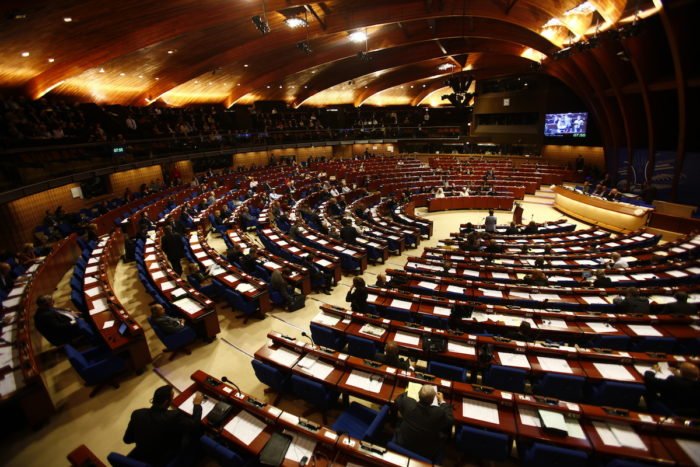The Parliamentary Assembly of the Council of Europe (PACE) on Wednesday called for monitoring of Turkey to be reinstated in order to strengthen its cooperation with Turkish authorities and all forces in the country and thus ensure respect for fundamental freedoms, the rule of law and democracy.
In a press release on Wednesday, the monitoring committee underlined that there has been a “serious deterioration of the functioning of democratic institutions in the country” during a state of emergency declared following a failed coup attempt on July 15 of last year.
In a recent report prepared by PACE rapporteurs Marianne Mikko and Ingebjørg Godskesen, PACE pointed out that the ruling Justice and Development Party (AKP) government had adopted “disproportionate measures” that go beyond what is permitted by the Turkish Constitution and international law, and expressed concern about the extent of the purges conducted in public administration, the military, the judiciary and the teaching profession.
The PACE report stated that one-quarter of judges and prosecutors, one-tenth of the police force, 30 percent of the staff in the Ministry of Foreign Affairs and 5,000 academics have been dismissed as part of post-coup purges in Turkey.
The committee also expressed alarm at the repeated violations of freedom of the media by the Turkish government and described the situation as “unacceptable in a democratic society” while adding that a large number of journalists currently under arrest and critical journalists were silenced due to government pressure.
On the imprisonment of Kurdish politicians, PACE said the lifting of the immunity of 154 deputies in May 2016 has undermined the functioning of Turkey’s Parliament and affected the opposition parties, in particular the pro-Kurdish Peoples’ Democratic Party (HDP), 93 percent of whose MPs have been stripped of their immunity from prosecution.
According to the committee, this measure has led to serious restrictions on democratic debate in the run-up to a constitutional referendum on April 16 that will significantly extend President Recep Tayyip Erdoğan’s powers and will introduce a presidential system of governance in Turkey.
PACE also expressed concern about “the envisaged system of checks and balances, the separation of powers, and the independence of the judiciary” in the event of a shift from a parliamentary to a presidential system following the referendum.
In light of the established violations of human rights under the state of emergency, the Monitoring Committee has called on Turkish authorities to take urgent measures and in particular to lift the state of emergency as soon as possible, halt the publication of decree-laws which bypass parliamentary procedure and to release all detained parliamentarians and journalists pending trial, unless convicted.
The report is due to be debated during the April 2017 part-session. In the meantime, at the request of the Monitoring Committee, the Venice Commission is expected to adopt, on March 10, 2017, an opinion on the constitutional amendments put to referendum, together with an opinion on the measures provided for in the recent emergency decree-laws in Turkey with respect to freedom of the media. (turkishminute.com) March 9, 2017















